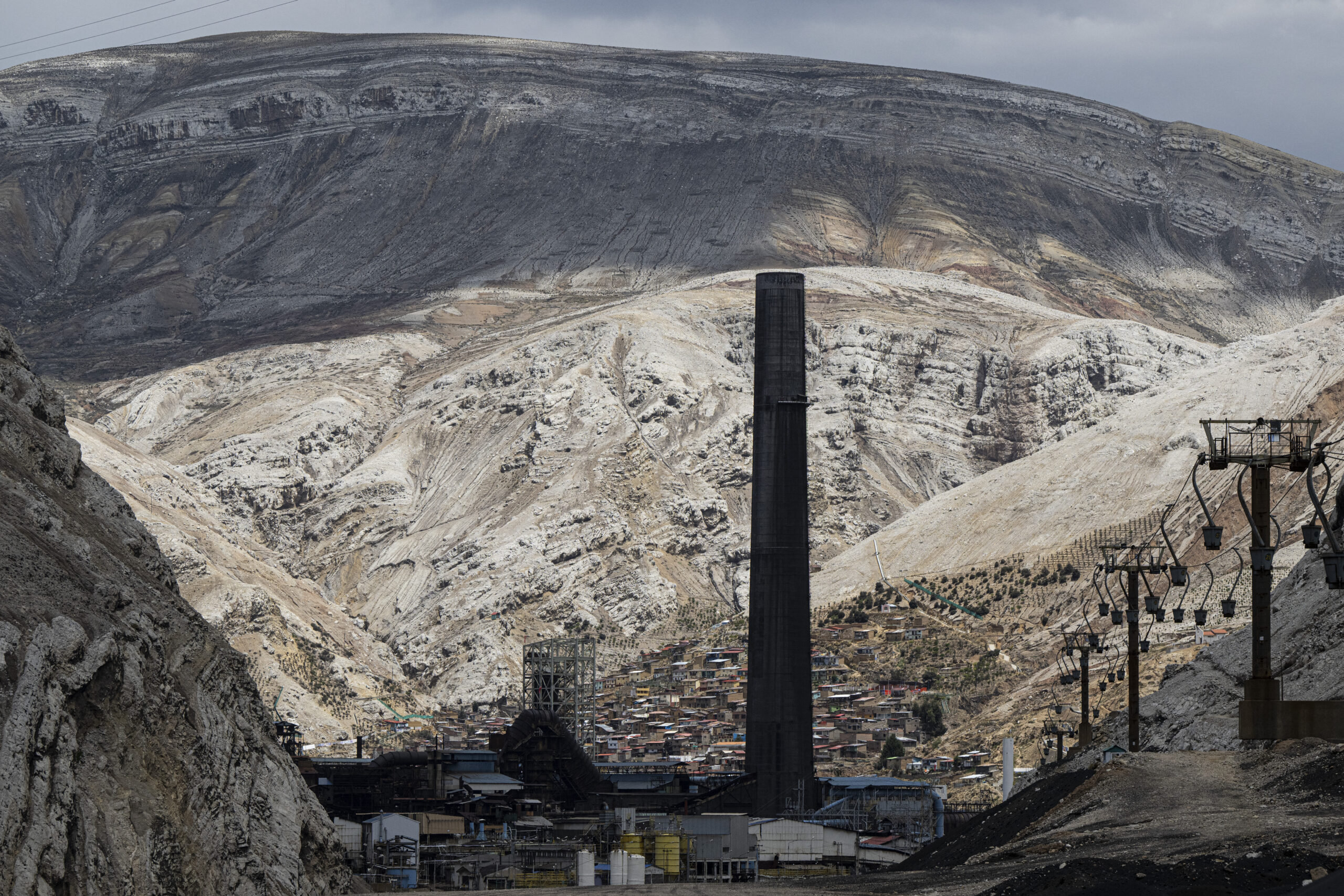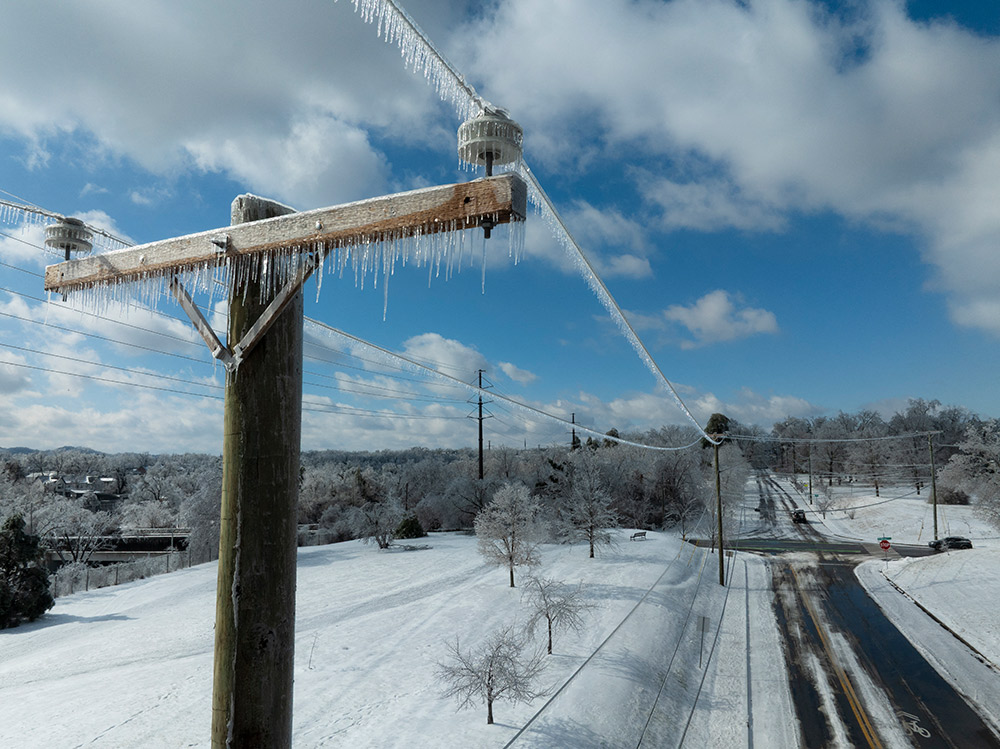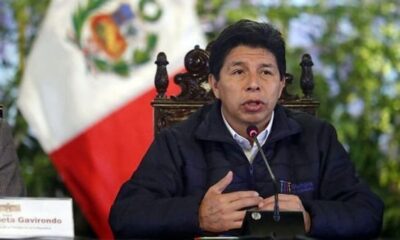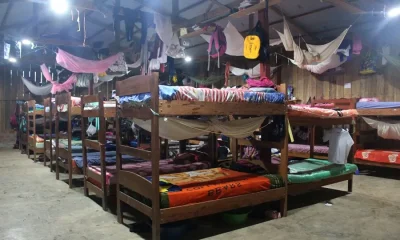International
Health or jobs: Peruvian mining town at a crossroads

| By AFP | Carlos Mandujano |
The Peruvian mining city of La Oroya, one of the most polluted places in the world, is seeking to reopen a heavy metal smelter that poisoned residents for almost a century.
The Andean city, situated in a high-altitude valley at 3 750 meters (12 300 feet), is a grey, desolate place.
Small houses and shops — many abandoned — cluster around towering black chimneys, surrounded by ashen mountain slopes corroded by heavy metals and long devoid of vegetation.
In 2009, the gigantic smelter that was the economic heartbeat of La Oroya went bankrupt, forcing residents to leave in droves and bringing local commerce to its knees.
Since 1922, the plant processed copper, zinc, lead, gold, selenium, and other minerals from nearby mines.
If the metallurgical complex reopens, as announced by its new owners in October, it could breathe life back into the economy.
“The large majority of the population is eager and has waited a long time for this to start up again, because it is the source of life, the economic source,” said 48-year-old taxi driver Hugo Enrique.
But at what cost?
A lifetime of disease
In 2011, La Oroya was listed as the second-most polluted city on Earth, falling into fifth place two years later, according to the Blacksmith Institute, an NGO which works on pollution issues.
It was in insalubrious company, rubbing shoulders with Ukraine’s nuclear-sullied Chernobyl and Russia’s Dzerzhinsk, the site of Cold War-era factories producing chemical weapons.
According to the International Federation for Human Rights, in 2013, 97 percent of La Oroya children between six months and six years of age, and 98 percent between age seven and 12, had elevated levels of lead in their blood.
Manuel Enrique Apolinario, 68, a teacher who lives opposite the foundry, told AFP his body has high levels of lead, arsenic, and cadmium.
Residents had “gotten used to the way of life, surrounded by smoke and toxic gases,” he said.
“Those of us who have lived here for a lifetime have been ill with flu and bronchitis, especially respiratory infections.”
Another 100 years?
The foundry was opened in 1922, nationalized in 1974, and later privatized in 1997 when US natural resources firm Doe Run took it over.
In June 2009, Doe Run halted work after failing to comply with an environmental protection program and declared itself insolvent.
Now, despite years of residents accusing Lima and Doe Run of turning a blind eye to the harmful effects, some 1 270 former employees want to reopen the smelter next March — with the vow not to pollute.
Luis Mantari, one of the new owners, who is in charge of logistics, said the plant would operate “with social and environmental responsibility.”
“We want this unique complex to last another 100 years,” added human resources boss Jose Aguilar.
The company has stockpiled 14 million tonnes of copper and lead slag waste waiting to be converted into zinc.
“Those of us who fought against pollution have never opposed to the company working. Let it reopen with an environmental plan,” said Pablo Fabian Martinez, 67, who also lives near the site.
For many, though, the decision comes down to pure pocketbook issues.
“I want it to reopen because, without the company, La Oroya lost its entire economy,” added Rosa Vilchez, a 30-year-old businesswoman. Her husband left to work in another city after the closure.
Respect health
In 2006, La Oroya residents sued the Peruvian government at the Inter-American Commission on Human Rights for allowing the company to pollute at will.
Hearings began in October with the court sitting in the Uruguayan capital Montevideo, and residents recounted how they struggled with burning throats and eyes, headaches, and difficulty breathing.
Others told of tumors, muscular problems, and infertility blamed on pollution from the smelters.
The commission found last year that the state had failed to regulate and oversee the behavior of the mining company and “compromised its obligation to guarantee human rights.”
“We are aware that the metallurgical complex is a source of employment. We don’t deny that,” said Yolanda Zurita, one of the litigants, who plants trees to counter the pollution.
“But it must respect the population’s health.”
International
Winter Storm Fern Leaves 30 Dead and Over One Million Without Power Across the U.S.

The massive winter storm Fern, bringing polar temperatures, battered large portions of the United States for a third consecutive day on Monday, leaving at least 30 people dead, more than one million households without electricity, and thousands of flights grounded.
In the Great Lakes region, residents awoke to extreme cold, with temperatures dropping below -20°C. Forecasts indicate that conditions are expected to worsen in the coming days as an Arctic air mass moves south, particularly across the northern Great Plains and other central regions, where wind chills could plunge to -45°C, temperatures capable of causing frostbite within minutes.
Across the country, heavy snowfall exceeding 30 centimeters in roughly 20 states triggered widespread power outages. According to PowerOutage.com, nearly 800,000 customers remained without electricity on Monday morning, most of them in the southern United States.
In Tennessee, where ice brought down power lines, approximately 250,000 customers were still without power. Outages also affected more than 150,000 customers in Mississippi and over 100,000 in Louisiana, as utility crews struggled to restore service amid dangerous conditions.
International
Spain approves plan to regularize up to 500,000 migrants in Historic Shift

In November 2024, Spanish Prime Minister Pedro Sánchez announced a reform of the country’s immigration regulations aimed at regularizing 300,000 migrants per year over a three-year period, in an effort to counter population aging in a country where births have fallen by 25.6% since 2014, according to official data.
Going against the trend in much of Europe, Spain’s left-wing government has now approved an exceptional migrant regularization plan that could benefit up to 500,000 people, most of them from Latin America.
The measure will allow the regularization of around “half a million people” who have been living in Spain for at least five months, arrived before December 31, 2025, and have no criminal record, Migration Minister Elma Saiz explained on public television.
The plan, approved on Tuesday by the Council of Ministers, establishes that applications will be processed between April and June 30, enabling beneficiaries to work in any sector and anywhere in the country, Saiz said.
“Today is a historic day for our country. We are strengthening a migration model based on human rights, integration, and one that is compatible with economic growth and social cohesion,” the minister later stated at a press conference.
The socialist government of Pedro Sánchez stands out within the European Union for its migration policy, contrasting with the tightening of immigration measures across much of the bloc amid pressure from far-right movements.
Central America
Honduras swears in conservative president Asfura after disputed election

Conservative politician Nasry Asfura assumed the presidency of Honduras on Tuesday with an agenda closely aligned with the United States, a shift that could strain the country’s relationship with China as he seeks to confront the economic and security challenges facing the poorest and most violent nation in Central America.
Asfura’s rise to power, backed by U.S. President Donald Trump, marks the end of four years of left-wing rule and secures Trump another regional ally amid the advance of conservative governments in Chile, Bolivia, Peru, and Argentina.
The 67-year-old former mayor and construction businessman was sworn in during an austere ceremony at the National Congress, following a tightly contested election marred by opposition allegations of fraud and Trump’s threat to cut U.S. aid if his preferred candidate did not prevail.
Grateful for Washington’s support, Asfura—who is of Palestinian descent—traveled to the United States to meet with Secretary of State Marco Rubio, before visiting Israeli Prime Minister Benjamin Netanyahu.
“We need to strengthen relations with our most important trading partner,” Asfura said after being declared the winner of the November 30 election by a narrow margin, following a tense vote count that lasted just over three weeks.
-

 Central America2 days ago
Central America2 days agoGuatemala seizes over a ton of cocaine hidden in flour at Pacific port
-

 Central America5 days ago
Central America5 days agoGuatemala’s president rules out negotiations with inmates after prison riots
-

 International4 days ago
International4 days agoTrump-Era Defense Plan Prioritizes Border Security and Scales Back Global Commitments
-

 Internacionales5 days ago
Internacionales5 days agoMajor winter storm threatens “catastrophic” ice and snow across much of the U.S.
-

 International4 days ago
International4 days agoBogotá and Quito Seek Dialogue After Tariffs and Power Cut Escalate Tensions
-

 International3 days ago
International3 days agoDelcy Rodríguez seeks political agreements after Maduro’s ouster
-

 International5 days ago
International5 days agoGuatemala considers sending high-risk gang members to military prisons
-

 International2 days ago
International2 days agoHistoric snowstorm paralyzes Toronto after 60 centimeters of snow
-

 International2 days ago
International2 days agoSpain’s irregular migrant population rises to 840,000, study finds
-

 International3 days ago
International3 days agoFederal immigration agents kill man in Minneapolis, sparking protests and outrage
-

 International5 days ago
International5 days agoRights group says over 5,000 killed in Iran protests, mostly civilians
-

 Central America1 day ago
Central America1 day agoGuatemala Police Arrest Prison Guard Caught in the Act of Extortion
-

 Sin categoría1 day ago
Sin categoría1 day agoEight Killed in Series of Armed Attacks in Ecuador’s Manabí Province
-

 International1 day ago
International1 day agoWinter Storm Fern Leaves 30 Dead and Over One Million Without Power Across the U.S.
-

 Central America1 day ago
Central America1 day agoHonduras swears in conservative president Asfura after disputed election
-

 International1 day ago
International1 day agoDoomsday clock moves to 85 seconds before midnight amid rising global risks
-

 International2 days ago
International2 days agoRights group says nearly 6,000 killed in Iran protest crackdown
-

 Central America1 day ago
Central America1 day agoBukele leads public trust rankings as UCA survey highlights gains in security
-

 International2 days ago
International2 days agoVenezuela frees at least 80 political prisoners, NGO says
-

 International1 day ago
International1 day agoSpain approves plan to regularize up to 500,000 migrants in Historic Shift
-

 Sin categoría1 day ago
Sin categoría1 day agoEl Salvador Launches Fourth Year of Ocean Mission to Protect Marine Ecosystems
-

 International2 days ago
International2 days agoEU launches new probe into X over AI-generated fake nude images
-

 International2 days ago
International2 days agoSevere winter storm grips U.S., leaves multiple dead as extreme cold persists
-

 International2 days ago
International2 days agoFrance debates ban on social media for children under 15
























































